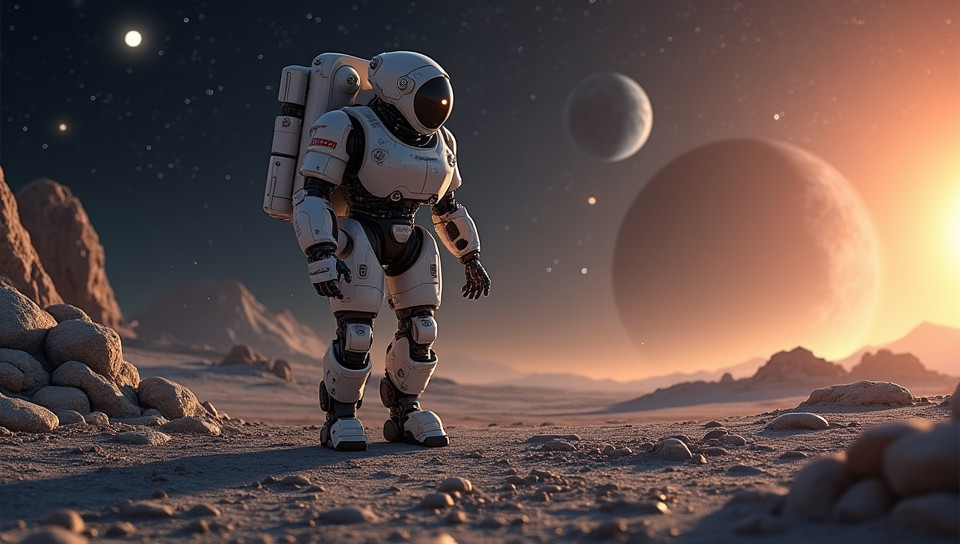Robots have greatly advanced space exploration in recent years 79%

The New Frontier: How Robots are Revolutionizing Space Exploration
As we continue to push the boundaries of human knowledge and exploration, it's hard to ignore the significant role that robots have played in recent years. From navigating the vast expanse of space to landing on distant planets, robots have proven themselves to be invaluable tools for scientists and researchers.
The Dawn of Robotic Space Exploration
The use of robots in space exploration dates back to the 1960s with NASA's Mariner 4 mission, which sent a robotic spacecraft to Mars. However, it was the early 2000s that saw the introduction of more advanced robotics technology, including autonomous navigation and manipulation systems.
The Advantages of Robotic Space Exploration
Robots offer several advantages when it comes to space exploration: - Increased safety: Robots can operate in environments that are too hostile or remote for human exploration. - Improved efficiency: Robots can work tirelessly without the need for rest or maintenance, allowing for more efficient data collection and analysis. - Enhanced precision: Robots can perform tasks with a level of precision and accuracy that is difficult for humans to achieve.
Recent Breakthroughs in Robotic Space Exploration
In recent years, we've seen several significant breakthroughs in robotic space exploration. For example:
- NASA's Curiosity Rover has been exploring Mars since 2012, discovering evidence of ancient lakes and rivers on the planet.
- The European Space Agency's Rosetta mission successfully landed a robotic probe on Comet 67P/Churyumov-Gerasimenko in 2014.
- China's Chang'e 4 mission made history by landing a robotic spacecraft on the far side of the Moon in 2019.
Looking to the Future
As we continue to push the boundaries of what is possible with robotics and space exploration, it's clear that robots will play an increasingly important role in our understanding of the universe. With advancements in artificial intelligence, machine learning, and autonomous systems, the possibilities for robotic space exploration are endless.
In conclusion, the advancement of space exploration through robotics has been a game-changer for the field, offering new opportunities for discovery and pushing the boundaries of human knowledge. As we look to the future, it's clear that robots will continue to play a vital role in our pursuit of understanding the universe.
- Created by: Andriy Savchenko
- Created at: Aug. 15, 2024, 10:03 p.m.
- ID: 7280
